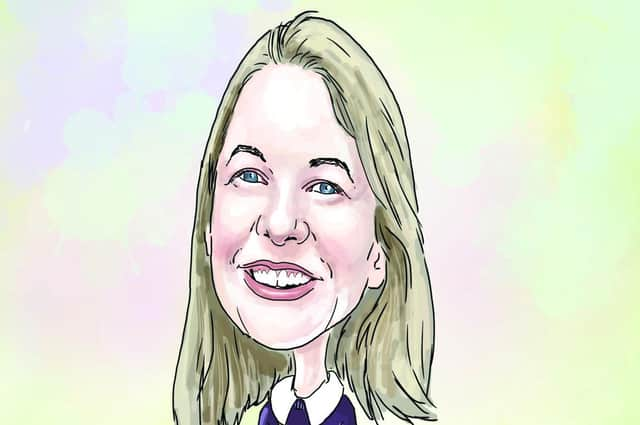Data conference: Layla Robinson on advancing access for the public good


In Scotland, our data systems are relatively advanced – we have a rich history in data informatics and longstanding datasets with good population coverage of about six million.
This means using data to provide an evidence base for interventions to answer societal questions – such as health inequalities, climate change, cost of living, and productivity – should be embraced.
Advertisement
Hide AdAdvertisement
Hide AdFor example, during the pandemic, researchers were able to use patient data to track Covid 19 in near realtime as well as, for instance, the effectiveness of vaccines.
It’s a good example to highlight RDS’s mission – that it is possible to speed up access to public sector data for research for public good.
There was a lot of agreement on the panel, particularly on the importance of getting the right balance of risk and the need to simplify access to public sector data for research. Currently, the balance can be too far towards no risk and there are also steps that provide no additional benefit or reassurance.
We need to ensure data owners are on board and can see the benefit to allowing access to data, even if it might not directly benefit them. There is wider benefit, and there is a risk of not doing the research and realising the positives that could come from it.
It’s clear that information governance is key – getting the right balance to allow researcher access to data and protecting individuals’ data, but a host of legislation and regulation is in place to ensure this, such as GDPR and the Digital Economy Act.
Working with the legislation and safe guards, a key part of RDS’ work is looking at approval processes and how we can improve these.
Public engagement is at the heart of our work to support trust and transparency.
We’ve funded a series of projects across Scotland to support engagement in data research. These eight projects have looked at including diverse voices and a mix of approaches to breaking down barriers and empowering the public to engage with data research.
Advertisement
Hide AdAdvertisement
Hide AdWe’re also reinvigorating a public panel to guarantee the public’s voice can be heard. A highly-anticipated piece of work from RDS is our Researcher Access Service, which will offer end-users a complete, but streamlined, pathway to apply for and gain access to secure data.
There is a need to support innovation and infrastructure in this way – not all innovation may seem exciting and it would be good to see investment to embed programmes of change and ensure there is support from data owners and controllers across all levels.
These things take time, but RDS’s role is to work in partnership and lead the transformation of Scotland’s public sector data systems.
We can’t do it alone, we need to work with other organisations across the Scottish data landscape to provide system leadership.
If we get this right, then we can make progress and not fall behind other UK nations and internationally to align and simplify policies and approaches and to deliver improvements.
- Layla Robinson, Research Data Scotland